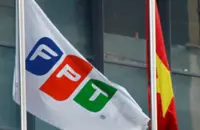
The group charged approximately 5,000 people elevated prices between between 400 and 500 pesos (US$25 to US$30/RM115 to RM139) a month, the Michoacán state prosecutor's office told The Associated Press. That meant the group could rake in around US$150,000 (RM695,850) a month. — AP
MEXICO CITY: A cartel in the embattled central Mexico state of Michoacan set up its own makeshift Internet antennas and told locals they had to pay to use its WiFi service or they would be killed, state prosecutors said Wednesday (Jan 3).
Dubbed "narco-antennas” by local media, the cartel's system involved Internet antennas set up in various towns built with stolen equipment.
Uh-oh! Daily quota reached.









































